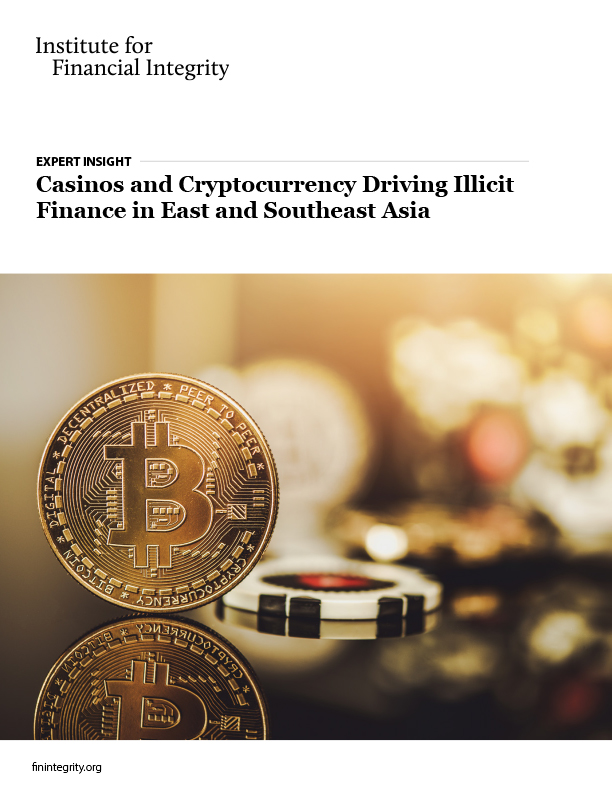Wicked Games
Avoiding Money Laundering Risk in the Casino Industry
📅 February 4, 2025
📅 February 4, 2025
Regulators during the past several years have increased their efforts to counter illicit cash flows through casinos that move proceeds of everything from drug trafficking to forced labor. Millions of dollars flow through casinos—both online and in physical locations—providing ample opportunity to convert illicit cash into chips, play a few games, and receive clean funds once ready to cash out. The anonymity provided by the cash-intensive industry necessitates stringent due diligence by gaming-industry compliance personnel.
Global financial crimes watchdog, the Financial Action Task Force (FATF) in 2009 issued a report on the money-laundering vulnerabilities of casinos and the gaming sector. In an effort to bring about policy changes, FATF identified significant gaps in awareness of money-laundering typologies, gaps in regulatory and law enforcement responses, gaps in online gaming typologies, vulnerabilities of junkets, and other problems in the gambling sector.
The variety, frequency and volume of transactions makes the gaming sector particularly vulnerable to money laundering, according to FATF.
Several high-profile enforcement cases in countries, including the United States, Canada, the UK, and Australia, demonstrate regulators’ enhanced efforts to hold the gaming sector accountable for illicit funds that flow through their venues. These and other countries are stressing the importance of effective AML programs in the gaming industry.
Casinos in the United States, which have gross annual gaming revenues of more than $1 million are subject to the requirements of the Bank Secrecy Act (BSA), according to the U.S. Treasury, and must develop and implement a written AML program. The casinos’ AML program must include:
✅ Internal controls (policies and procedures designed to assure compliance with the BSA;
✅ Training of the casino employees;
✅ Independent testing for compliance;
✅ A compliance officer, who is responsible for day-to-day compliance with the BSA and the casino’s AML program;
✅ Procedures for using all available information to determine, when required, the name, address and Social Security Number, and to verify customers’ identities;
✅ Procedures for using all available information to determine any transactions or patterns of transactions required to be reported as suspicious; and
✅ Procedures for using computers to aid in assuring compliance, if the casino has computerized systems.
Casinos also must file currency transaction reports (CTRs) to identify each transaction in currency involving cash-in and cash-out of more than $10,000 in a gaming day.
Other countries such as Canada, the UK, and Australia, have their own, varying definitions of casinos and what they must do to comply with AML/CFT laws. In these jurisdictions, casinos must ensure they have effective AML procedures in place, including carrying out risk assessments, conducting identity verifications, ongoing monitoring, transaction reporting, and recordkeeping. Australia also requires casinos to document how their AML/CFT programs comply with applicable legislation. According to the country’s regulator, the program must be a written document showing how you identify, mitigate and manage the risk of your products or services being used for money laundering or terrorism financing.
Senior management commitment is particularly important in ensuring that casinos, much like other designated non-financial businesses and professions, have robust AML controls to prevent illicit financial flows. This commitment includes ensuring adequate resources are allocated to compliance teams and support for compliance personnel’s authority, as well as communicating in word and deed the importance of preventing illicit financial flows.
Casinos are cash-intensive businesses that offer numerous financial services, including cash issuing, foreign exchange, remittance, and others. Compliance professionals in the gaming sector should monitor transactions for signs of criminal activity that exploits instruments offered by casinos. According to FATF, methodologies used in money-laundering activity at casinos include:
Numerous red flags can indicate possible money laundering, and compliance officers in the gaming sector must be alert and aware of the signs.
🚩 Does a customer appear uninterested in winning?
🚩 Does a customer insert funds into a gaming machine and immediately claim them as credits?
🚩 Are two or more customers frequently betting against one another on even-money games?
🚩 Is a customer purchasing and cashing out casino chips with little or no gaming activity?
🚩 Is a customer requesting credit card transfers to other casinos?
🚩 Are personal or travelers’ checks or third parties being used to purchase casino chips?
🚩 Is a customer making large chip purchases or is the customer’s activity inconsistent with their profile?
These are just some of the red flags that can indicate illicit financial activity in the gaming sector. Although these indicators do not necessarily signal criminal activity, the more indicators are present, the more cautious compliance teams should be.
Close monitoring of transactions and knowledge and understanding of money laundering methodologies can help compliance officers in the gaming industry calibrate their AML programs to be more effective at fighting financial crime in their casinos.

Check out our comprehensive expert insight report detailing how casinos and cryptocurrencies are driving illicit finance in East and Southeast Asia.










 Examining Evasion
Examining EvasionThis site uses cookies. By continuing to browse the site, you are agreeing to our use of cookies.
Accept settingsHide notification onlySettingsWe may request cookies to be set on your device. We use cookies to let us know when you visit our websites, how you interact with us, to enrich your user experience, and to customize your relationship with our website.
Click on the different category headings to find out more. You can also change some of your preferences. Note that blocking some types of cookies may impact your experience on our websites and the services we are able to offer.
These cookies are strictly necessary to provide you with services available through our website and to use some of its features.
Because these cookies are strictly necessary to deliver the website, refusing them will have impact how our site functions. You always can block or delete cookies by changing your browser settings and force blocking all cookies on this website. But this will always prompt you to accept/refuse cookies when revisiting our site.
We fully respect if you want to refuse cookies but to avoid asking you again and again kindly allow us to store a cookie for that. You are free to opt out any time or opt in for other cookies to get a better experience. If you refuse cookies we will remove all set cookies in our domain.
We provide you with a list of stored cookies on your computer in our domain so you can check what we stored. Due to security reasons we are not able to show or modify cookies from other domains. You can check these in your browser security settings.
These cookies collect information that is used either in aggregate form to help us understand how our website is being used or how effective our marketing campaigns are, or to help us customize our website and application for you in order to enhance your experience.
If you do not want that we track your visit to our site you can disable tracking in your browser here:
We also use different external services like Google Webfonts, Google Maps, and external Video providers. Since these providers may collect personal data like your IP address we allow you to block them here. Please be aware that this might heavily reduce the functionality and appearance of our site. Changes will take effect once you reload the page.
Google Webfont Settings:
Google Map Settings:
Google reCaptcha Settings:
Vimeo and Youtube video embeds:
You can read about our cookies and privacy settings in detail on our Privacy Policy Page.
Privacy Policy